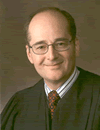The following post is adapted from my 2012 essay, “Spending and Amending: The Past and Future of Citizens United.” It evaluates four major predictions, identified in “Back to the Future? The Effects of Citizens United v. FEC in the 2010 Election,” by Peter L. Francia, that motivate would-be “reformers” of Citizens United. Taken together, these four predictions comprise the usual “case against Citizens United.” In this series of five posts, I evaluate each prediction and examine whether or not each was supported by data from the 2010 midterm elections. The fifth and final post draws conclusions from the data I have examined. You can read parts one, two, three, and five at these links.
Prediction 4: Foreign corporations would play a more significant role in the U.S. electoral process. In his 2010 State of the Union Address, President Barack Obama commented not only that the Citizens United ruling would “open the floodgates for special interests,” but added that this included “foreign corporations,” and that he did not think that “American elections should be bankrolled by America’s most powerful interests…”
The final charge against Citizens United, one repeatedly leveled by President Obama in 2010, is that foreign corporations would be able to influence elections. As Peter Francia says, that while the previous three predictions “appear to be supported with at least some of the preliminary evidence coming from the 2010 election, the claim of foreign corporations taking on a sizeable role in the U.S. electoral process as a result of the Citizens United ruling appears to have little basis.”
First, the Court left the legal prohibition against the use of funds from foreign individuals, organizations, or firms in federal elections completely untouched in Citizens United. Second, while “a U.S. subsidiary of a foreign corporation is entitled to form a political action committee,” according to Thomas E. Mann of the Brookings Institute, they can only do so “if the foreign parent corporation does not finance the PAC’s establishment, administration, or solicitation costs.” There is simply no viable legal avenue for foreign interests to influence American elections through contributions to candidates, parties, or PACs.
There has been no evidence that foreign individuals, corporations, or organizations have gained a foothold in American politics. Federal law prohibiting foreign nationals from contributing to federal election campaigns has remained unchanged since the sixties, and Citizens United did nothing to upset this prohibition. This is an issue of statutory law, and whether foreign nationals contribute more or less to political campaigns has nothing to do with the Citizens United decision.
Next topic: What have we learned about the impact of Citizens United in the 2010 midterm elections?













